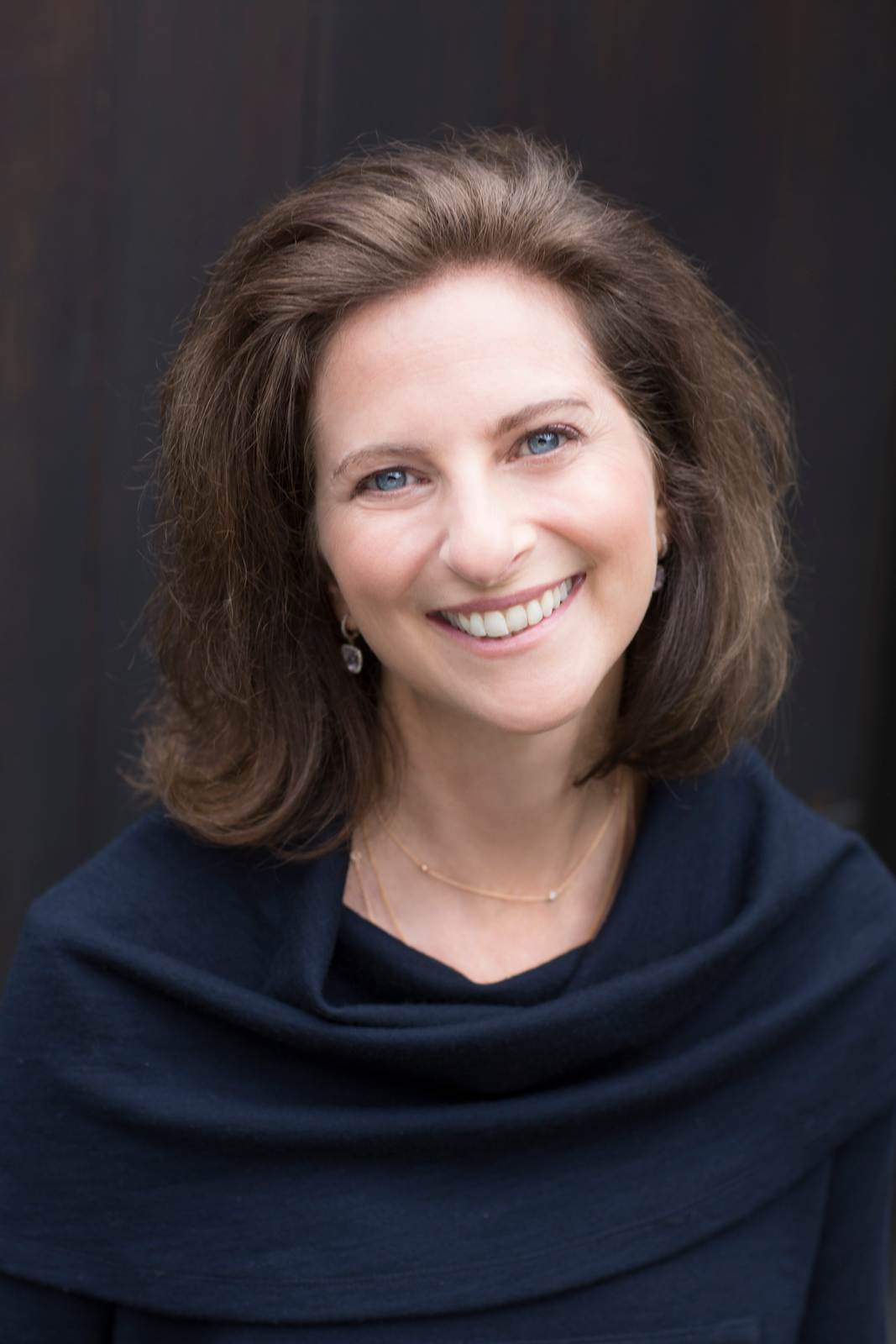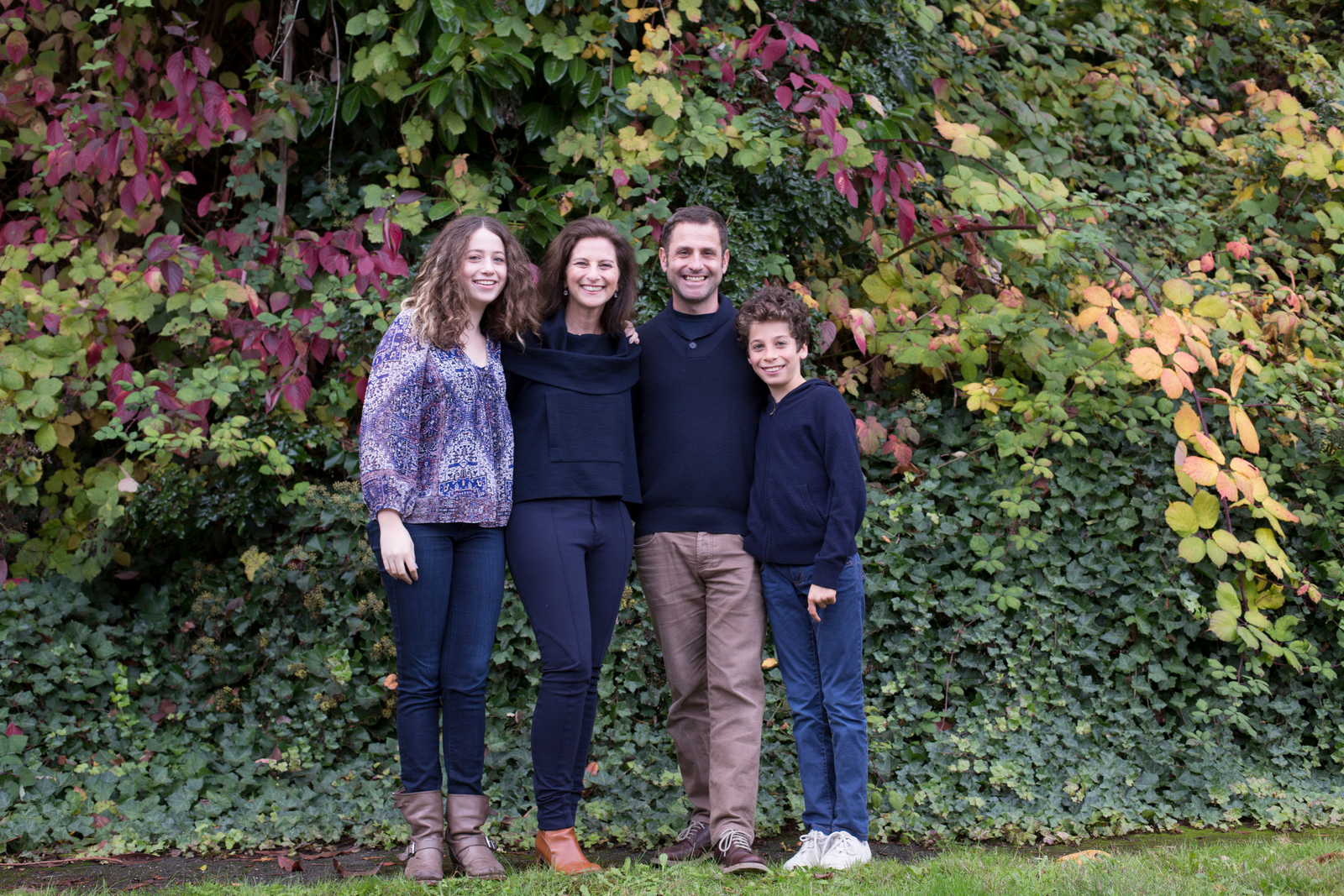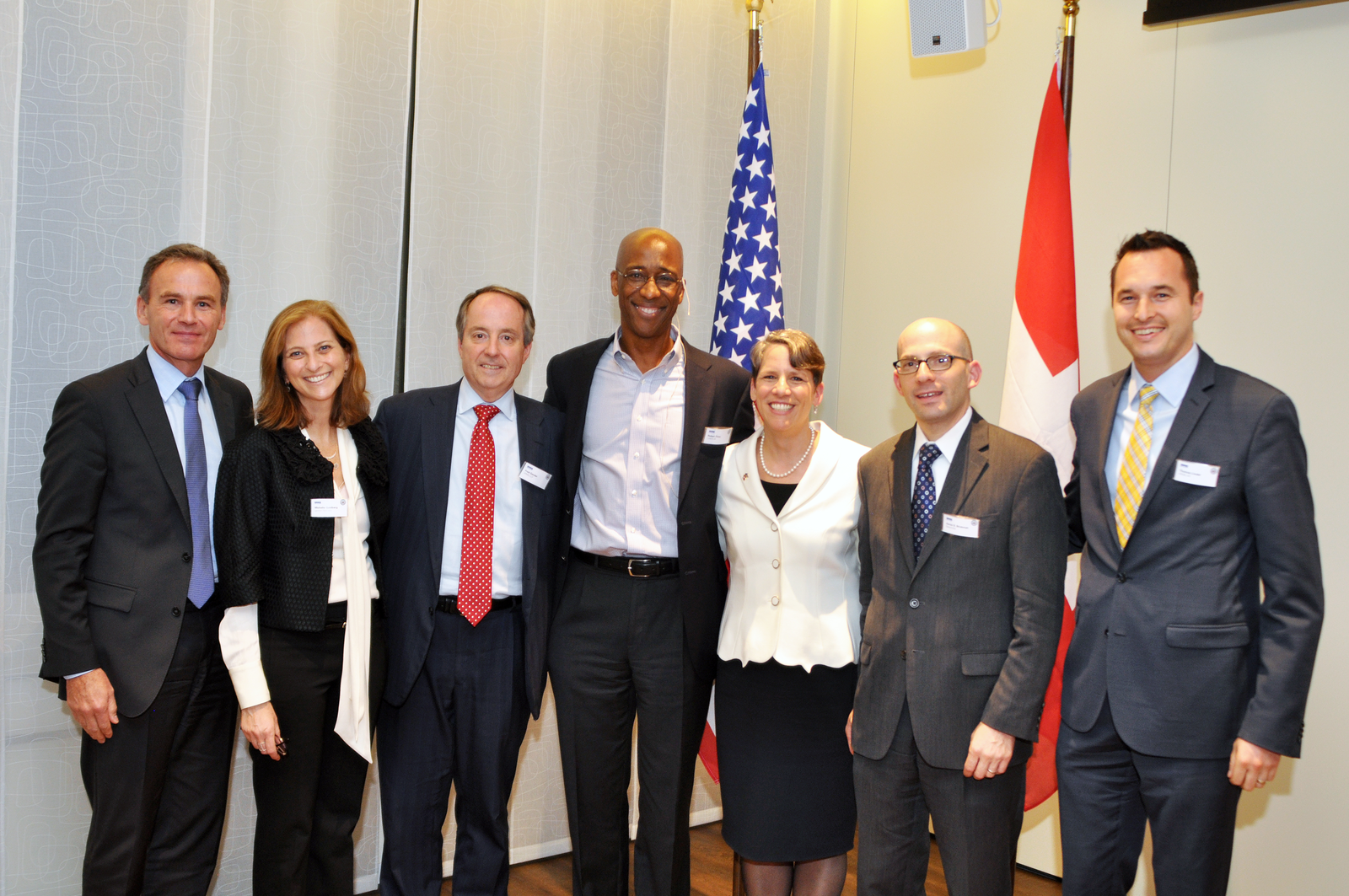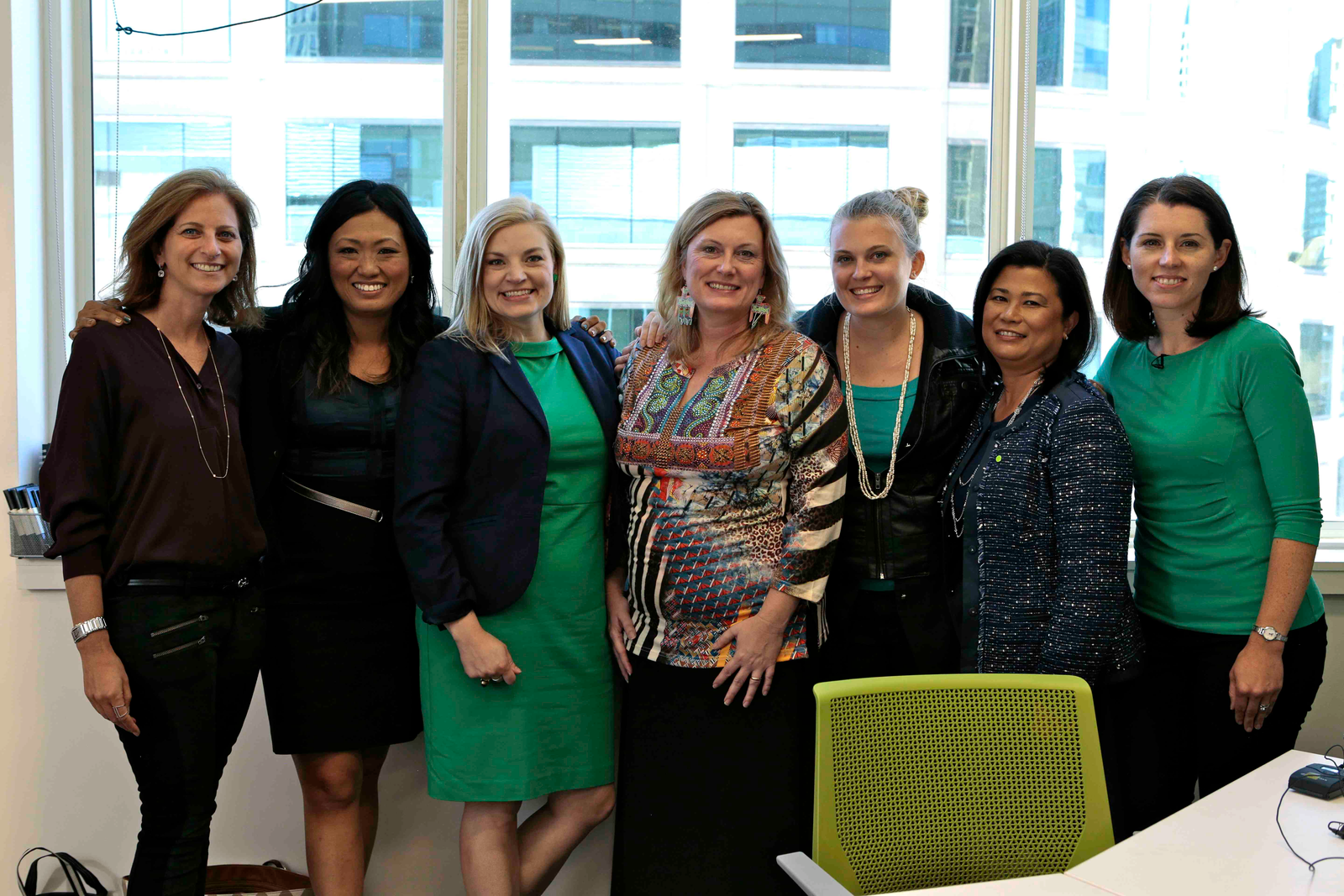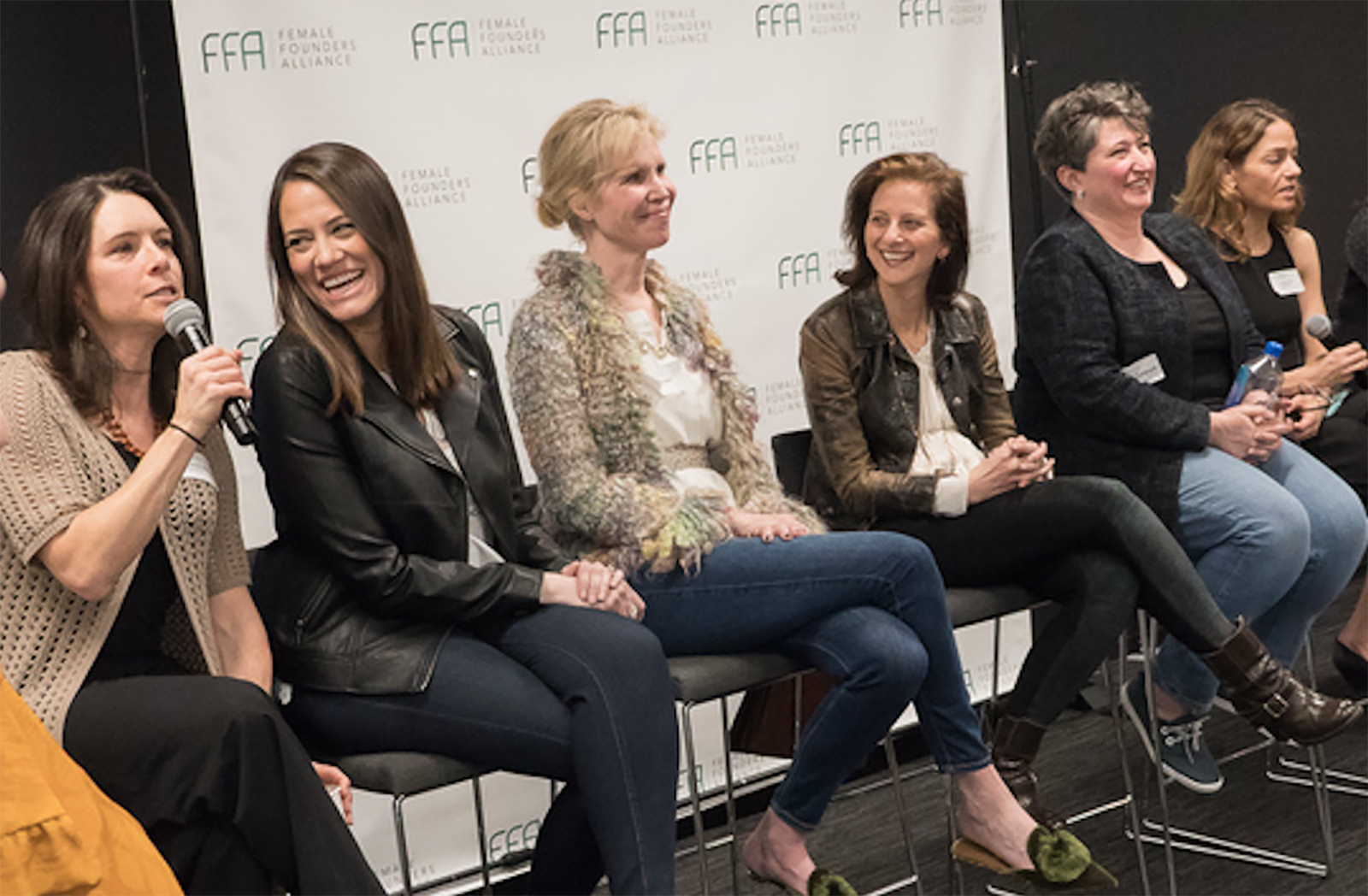I had a pretty normal childhood. I am grateful to my parents and my brothers for an amazing childhood. I grew up in Durham, NH, which is almost on campus at the University of New Hampshire. It was really nice to be part of a university town. I lived in New Hampshire until I went to college, when I was looking for a great school in the biggest city I could find—so I moved to New York City to attend Columbia. I loved Durham as a small town, but I also really love big cities. My grandfather was a rabbi in Haverhill, Massachusetts and he was involved in the Reform movement, so we were observant. We went to our own temple in New Hampshire but celebrated the holidays at my grandfather’s temple. I was bat mitzvah-ed and can still chant my haftorah!
I ask myself, what are Jewish values versus the values that I hold? I think a lot about liberal social values which come from my extended family and I have also experienced as part of Judaism. I wonder if in my family now we would differentiate between the values that we have and Jewish values.
My husband joined Microsoft, so like a lot of people in the tech community in Seattle, we are transplants. We thought it’d be interesting, that we’d come out for 3-5 years and we’re still here 20 years later! I like that Seattle is so livable. There are a lot of Seattle values that permeate the tech industry here like building long term value and I enjoy being part of that. I think it’s a great city to live in and access to the outdoors is so easy. Travel is a huge part of our life and we like to explore but we always come back.
Foresight and change in venture capitalism
Being in venture capital and funding early-stage technology companies—I think you have to believe in change and acknowledge change in the world; technological change, but also societal and economic change. You have to be somewhat of an optimist for change, while still balancing risk with realism. I saw a lot of technological change in emerging technologies, including the consumer internet and wireless. When I started my career, I don’t know that I had as much of a sense that there could be change for women, I didn’t set out to be one of very few women in VC at the time. I think I was just very open to change, and I had a lot of willingness to see it through and enable it to happen.
I started in venture in 2000. It was an exciting time. Over the past 18 years we have seen multiple economic cycles. There is no straight and narrow path toward venture, everyone I know in venture has come to it from a different angle. I came from finance, but I took a stop as a consultant at Microsoft. I was very lucky consulting in a space that was client server and n-tier computing, which was the prelude to what cloud computing became. I spent about a year at Microsoft where I met the group of senior executives who were leaving to form Ignition. I jumped over when they formed Ignition in the spring of 2000.
I like to look at businesses holistically. Thinking about risk and opportunity from a company and systemic level is exciting. Venture is hands-on investing, we are involved with the team, giving them help and advice. It is amazing to have a front row seat to innovation and the creativity of startup entrepreneurs. I feel everyday as though I have a glimpse into the future.
Every day in VC is different. We meet with entrepreneurs, do market and product research and think about trends. We think about general themes and technologies we foresee will have an impact, and we seek out teams doing innovative things in those spaces. Starting from sitting on the opposite side of the table negotiating the deal with the entrepreneur, once the deal is done, we are on the same side of the table. We try to clear the path for that team and CEO, so they can be successful. We spend a fair amount of time creating relationships with executives at bigger companies that are looking to grow their businesses and add new technology. Being a VC really encompasses the full lifecycle of a company, so any day can be different, from meeting with teams or executives, to interviewing to thinking about the consumers and market. I also like the times when I get to sit quietly and take time researching and thinking about where, when, and how I see change taking place.
I have always had great mentors both male and female who have challenged me and taught me a lot. I am also an advocate of peer mentorship and have an incredible group of women who I’ve met through work and have become close to throughout the years. I think a lot about mentors and mentorship, and I advise people to have their own personal board of directors—individuals who know your goals and can give advice as your career grows. Of those people, choose some who are in the same business or profession you are, but others who are not, and may think differently or push you to think differently. I feel like I’ve done a good job at gathering those people along the way and value the differences of opinion. I love mentoring—it’s very similar to VC. I invest when somebody has potential and I can help clear that path. I learn as much if not more from my mentees than they learn from me. These are such rewarding relationships personally and professionally. Where I have been most successful in pairing with a mentee is when we’ve naturally come together and developed a connection. In this case, I can be very proactive in thinking about how I can help this person, and I have a line of sight in how I can add value. There are always people to mentor, who are at an earlier stage than you, to pass it down to!
I have served on private boards, public boards, and philanthropic boards, which all have a very different feel to them. As a board member I think strategically about the whole; What is this company and how does it grow? Where does it fit within the landscape of what’s happening in the world today? I think a lot about risk—especially risk with technology. There is both cyber risk and risk in technology displacing how companies have operated in the past. With rapidly-changing technologies, it’s important to make sure that not only are the company’s processes, tools, and technologies up-to-date and relevant for today’s marketplace, but that the product is as well. On one hand, I invest in disruptive technology companies, but I also work with existing companies who are trying to cross that digital divide from old economy business models. Board work encompasses a lot- reading financials and understanding the business model, recruiting and attracting the right talent and spending time with the CEOs, serving as an advisor.
My philanthropy has centered around education, community and technology. I have been on the boards of schools and sit on finance committee and chair investment committee. I like the investment committee work and managing the endowment the best, I feel like it has long term impact for the institution. My work at Ada Developers Academy brought together education, technology and supporting women and diversity. Ada educates women to be software developers. I helped to raise a loan fund from technology executives in Seattle to support diversity and the next generation of software developers. The loan fund supports women who can’t afford to take the time to go back to a full-time program. The Ada graduates are on an incredible career trajectory in a much needed role in technology and Washington State. That aspect of the loan fund, the job training, and in some cases helping move people from one economic level to another, has been so powerful.
The need for female software developers
It just seems like the right thing to do. It’s right to have a gender balance in the same way you want to have diversity within companies. There’s data proving that when there is diversity at the board level, the executive level, and the software development level, good things happen in terms of value and growth. When you look at the consumer internet, there are so many companies whose end-users are women, but their products weren’t created by women, or none of their executives are women. To me, that’s a huge disconnect because again, the more diverse your team is, the more “What if’s?” you’ll think about, and the more empathy you will have with the end user. Innovation is all about different ideas and perspectives, the software developers should embody this diversity as well.

